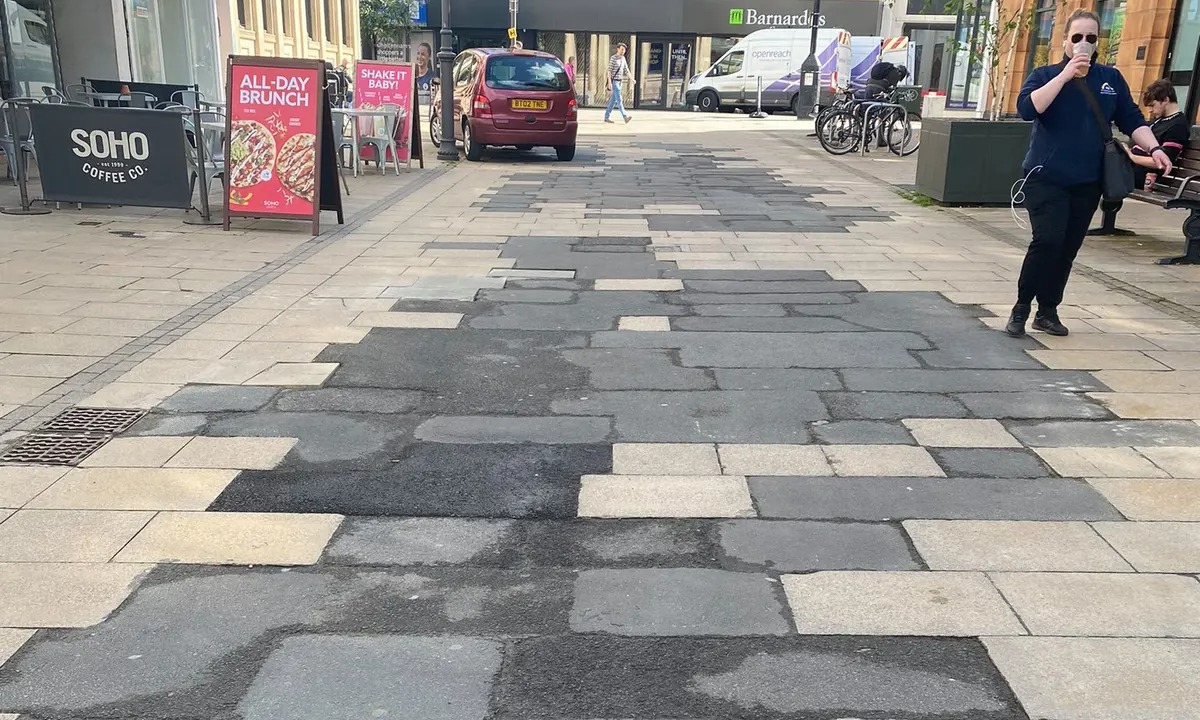A government adviser, Nicholas Boys Smith, who chairs the Office for Place in the Department for Levelling Up, Housing, and Communities, is urging the government to impose higher fines on utility companies that leave disfiguring “street scars” during roadworks by hastily pouring tarmac instead of restoring the pavement properly.
In a report, Boys Smith, who also runs the thinktank Create Streets, criticized the “ridiculous and wasteful process” conducted by telecoms and water companies, stating that it mars British high streets.
The term “street scars” refers to unsightly patches of black or grey tarmac that spoil the appearance of streets and pavements, a common sight across the UK. Boys Smith highlighted the inefficiency of the current approach, where one set of workers disrupts the road, and months later, another set attempts to rectify the damage.

Street Scars (Credits: The Guardian)
The adviser attributes the proliferation of street scars to the privatization of utility companies and their designation as “statutory undertakers” under the New Roads and Street Works Act 1991.
This status grants them the authority to carry out roadworks. According to Boys Smith, since 1984, Ofcom has granted new cable companies licenses, elevating them to the status of statutory undertakers, leading to an increased number of companies with the right to dig up roads.
Boys Smith expressed concern about the powerlessness of councils under the 1991 legislation and the insufficient penalties for utility companies. He argued that the six-month window for repairs and the low fines of up to £2,500 for non-compliance are inadequate.
He proposed a three-month deadline for utility firms to restore the road to its original state and recommended significantly higher fines of £5,000 per month (or more) for the initial three months and £10,000 per month (or more) thereafter.
He emphasized that utility companies could easily afford these increased fines, noting their substantial profits. For instance, in 2022-23, the eight main English water firms collectively reported profits before tax exceeding £3 billion despite high operating and financing costs.
Boys Smith criticized the prevailing culture of roadworks, attributing the messy outcome to a “culture of not caring” and inadequate training, resources, and rushed schedules for the teams conducting the work.
He emphasized that the unsightly patches of tarmac on streets for months or years are a result of choices made by utility companies rather than obligations.
























